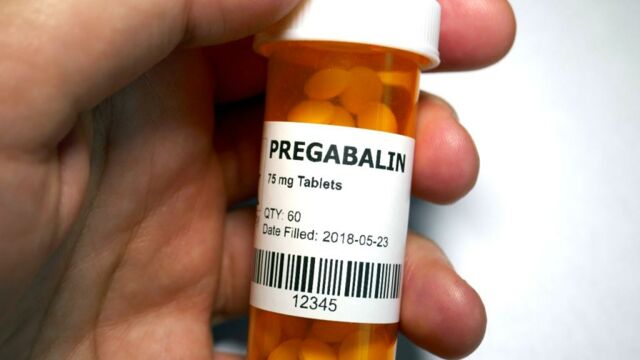Millions of people around the world struggle with anxiety, and while there are natural ways to combat the constant struggle, many people opt for medication to manage their symptoms. While benzodiazepines (benzos) are still the most prescribed pills for anxiety, medications such as xanax, valium and bromazepam are known for a high-risk factor of addiction. It is high enough to warrant serious consideration before deciding to jump on these medications even under medical supervision.
Discover our latest podcast
Enter pregabalin, a new-generation drug that was first aimed at epilepsy but turned out to be particularly adept at treating neuropathic pain and generalized anxiety disorder. Sold under the brand name Lyrica, it was meant to be a better alternative to benzos that still reduced and relieved anxiety.
Lately, the drug has been in the news for some concerning reasons.
The subtle dangers of Lyrica
In the UK, pregabalin is prescribed to eight million people. The drug became very popular among the medical community in the treatment of anxiety.
Before 2019, the drug was not a scheduled substance and it was far easier to get a prescription for it than for benzos due to their controlled nature. Sometimes it was even prescribed as a means to manage benzodiazepine withdrawal.
However, many users are now claiming that they became addicted to the drug they once thought would help them with anxiety.
Some of its users figured out that it was possible to reach the euphoric effect offered by the coveted benzos, if a high enough dosage was ingested. As such, many realised its dreadful and addictive nature only when they either tried to decrease their dosage of pregabalin or if they ran of the drug out altogether.
Severe withdrawal process
The downside to any addictive substance is the withdrawal process. The danger of a drug is directly correlated with how dangerous the withdrawal can be on the body. Alcohol, for example, a perfectly legal substance accessible almost anywhere, can kill alcoholics who try to wean themselves off without medical supervision.
Benzodiazepines mimic this ability as it is recommended to never stop taking them abruptly by doctors which is a direct hint to the danger associated with them.
Pregabalin was thought to replace the wicked withdrawals of benzos but ended up adding a new twist to the concept—as many patientsrecount experiences quite similar to benzodiazepines or worse as the withdrawal onset time is quick. Miranda Levy spoke to The Mirror in 2020 about her experience with pregabalin:
The other day I went out for dinner with an old friend. At around 9 pm, I started to feel queasy and hot. Too soon for food poisoning. Had I drunk my (single) gin and tonic a bit too quickly? I stood up to head for the bathroom and was hit by a wave of dizziness.
Once in the cubicle, I thought I was going to be sick. Did I have a bug, perhaps? Then I realised: it had to be withdrawal symptoms from my pregabalin.
The deadly consequences of ‘feeling good’
Another danger is the potential of overdosing and according to Daily Mail, there have been several instances where users of pregabalin have passed away after accidentally overdosing on the drug.
Research published by Conor Stewart, a Researcher tracking the latest developments in health and the pharmaceutical industry, showed that while benzodiazepines were behind 509 deaths in the UK in 2022, pregabalin on the other hand was involved in 779 fatalities in 2022 and 3400 deaths in the past five years.
Some doctors have previously issued warnings about the use of the drug, including psychiatrist Dr Peter Gordon who said, as quoted by Mirror:
Pregabalin is prescribed for anxiety despite the NHS knowing about the harmful effects it has had in the US.
Sadly, it appears as though what was once a solution has now become a bigger problem than the one it was meant to solve.
Read more:
⋙ Former addict who spent £35k on crack cocaine reveals what it's like to die
⋙ Cough syrup could become prescription-only due to addiction fears
⋙ Australian study reveals dangers of this ineffective painkiller which lead to addiction
Sources:
Daily Mail: How anti-anxiety drug which is currently prescribed to more than 8million Britons is linked to nearly 3,400 deaths in the past five years
The Mirror: Anti-anxiety drug prescribed to 8million Brits 'linked to 3,400 deaths in 5 years'















